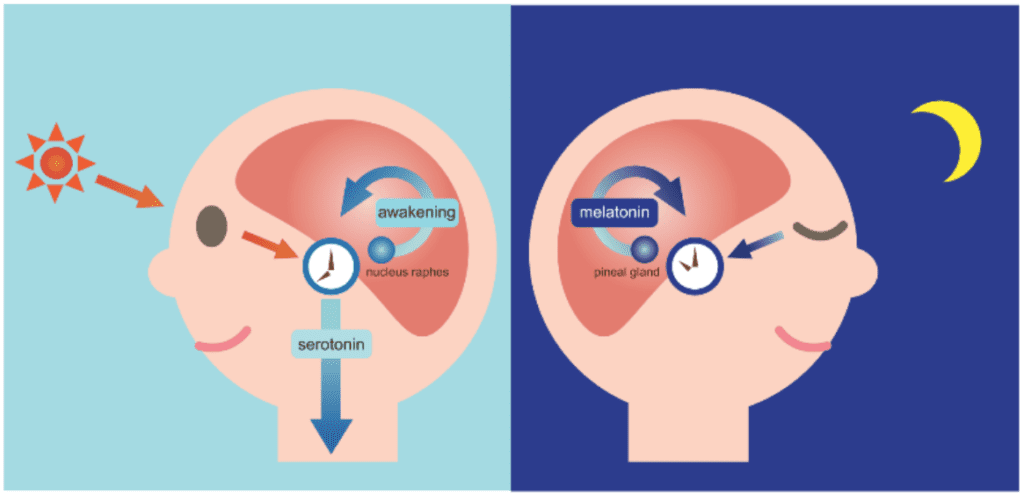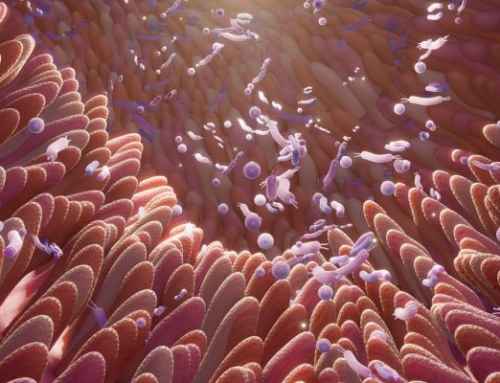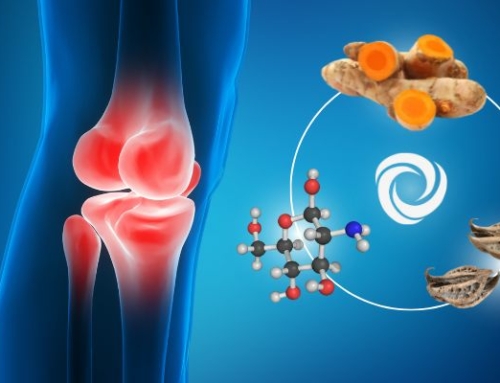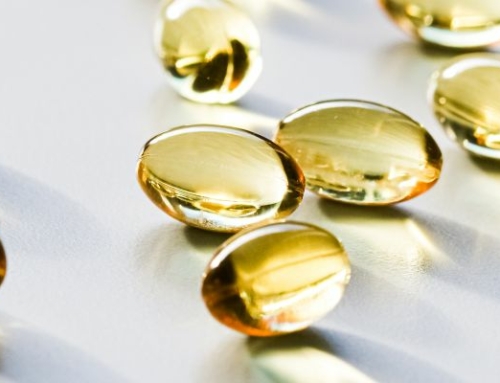Melatonin to reduce stress and anxiety

Stress is natural. It is the organism’s innate physiological response to an unexpected event perceived as life threatening. It enables the body to quickly slow down “non-vital” functions and focus all possible energy and resources to fight or escape from this danger; this is commonly called the “flight or fight” response.
Adrenaline and cortisol: 2 hormones involved in stress
Adrenaline is a “warrior hormone” that mobilises all available energy to give the muscular strength to react.
Cortisol transforms fat into sugar and mobilises sugar energy to a specific location in the body. Some organs and functions then become secondary or “on hold”. When its level returns to normal it will send a hunger response to the brain to replenish its reserves. In a regular situation, the cortisol maintains the energy balance of the body.
In a situation of recurrent stress, cortisol, and adrenaline are constantly secreted, which leads to a high heart rate, high blood pressure, and high blood sugar. The body constantly renews its reserves and stores them as fat. This continuous secretion can have a lot of negative consequences on health, such as diabetes and obesity, cardiovascular problems, memory disorders, learning difficulties, depression, and in case of cortisol depletion (adrenal fatigue) anxiety and exhaustion.
Melatonin: more than just a sleep hormone:
Melatonin is a hormone produced by the epiphysis gland, it is also called the sleep hormone. Its production is the antagonist to that of cortisol. It is secreted when the daylight reduces, inducing relaxation and preparing the body to sleep. Its peak secretion is around 3 am, but exposure to light affects its secretion and is one of the reasons people experience sleep difficulties when they travel as the exposure to light is changed and it affects natural melatonin secretion. For this reason, melatonin intake has been found to be very efficient in helping regulate the “sleep-wake” cycle. Moreover, with excessive exposure to non-natural light, the melatonin secretion of many individuals is disrupted, resulting in difficulties in falling asleep.
Like a dance, cortisol, and melatonin follow a circadian rhythm and are therefore essential in the sleep and wake cycles. Cortisol induces activity in the body, it’s peak secretion is between 6 and 8 in the morning, just before waking up, whereas melatonin induces calm, secreted when night falls, with a peak secretion around 3 am. It has a strong action on anxiety and some studies have shown that when associated with light it decreases aggressive behavior.
Getting ample natural sunlight is crucial as it directly affects the circadian rhythm, which, in turn, has a significant impact on our mood.
Studies have shown that melatonin plays a role in reducing stress-related psychological disturbances, anxiety, and agitation by bringing the circadian rhythm back in sync. This study has demonstrated the antidepressant potential of melatonin (1,2)
Melatonin goes beyond enhancing sleep quality; it can also alleviate stress, anxiety, and aggression, foster tranquility, and restore a sense of serenity.
Well Being Serenity, the natural solution:
Laboratoires Activa formulation for Well Being Serenity combines melatonin with amino acids and plant extracts known for their relaxing and calming properties. It has been shown that associating melatonin with specific amino acids improves its assimilation by the body and increases its bioavailability and biocompatibility. It also optimises its action in regulating the body clock.
Finally, the patented technology of microgranules enables gastro-protection and extended controlled release over a period of 8 hours.
Find out more about Activa Serenity
Notes:
[1] 42. Jansen S, Forbes D, Duncan V, Morgan D, Malouf R. Melatonin for the treatment of dementia.Cochrane Database Syst Rev. 2011;(1):CD003802. https://www.cochranelibrary.com/cdsr/doi/10.1002/14651858.CD003802.pub3/abstract
[2] Detanico BC 1 , Piato AL , Freitas JJ , Lhullier FL , Hidalgo MP , Caumo W , ElisabetskyE .Antidepressant-like effects of melatonin in the mouse chronic mild stress model. EurJ Pharmacol 2009 1 avril; 607 (1-3): 121-5. doi: 10.1016 / j.ejphar.2009.02.037. Epub2009 le 26 février. https://pubmed.ncbi.nlm.nih.gov/19249298/
Photo credit: depositphotos







